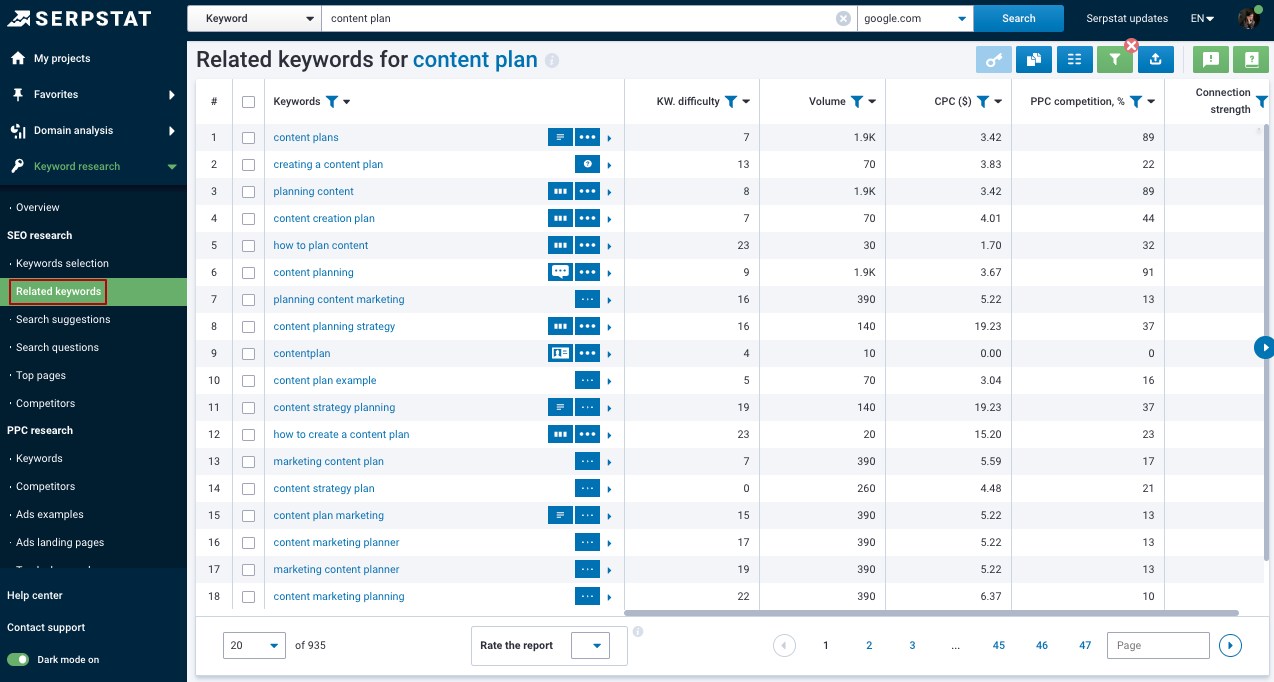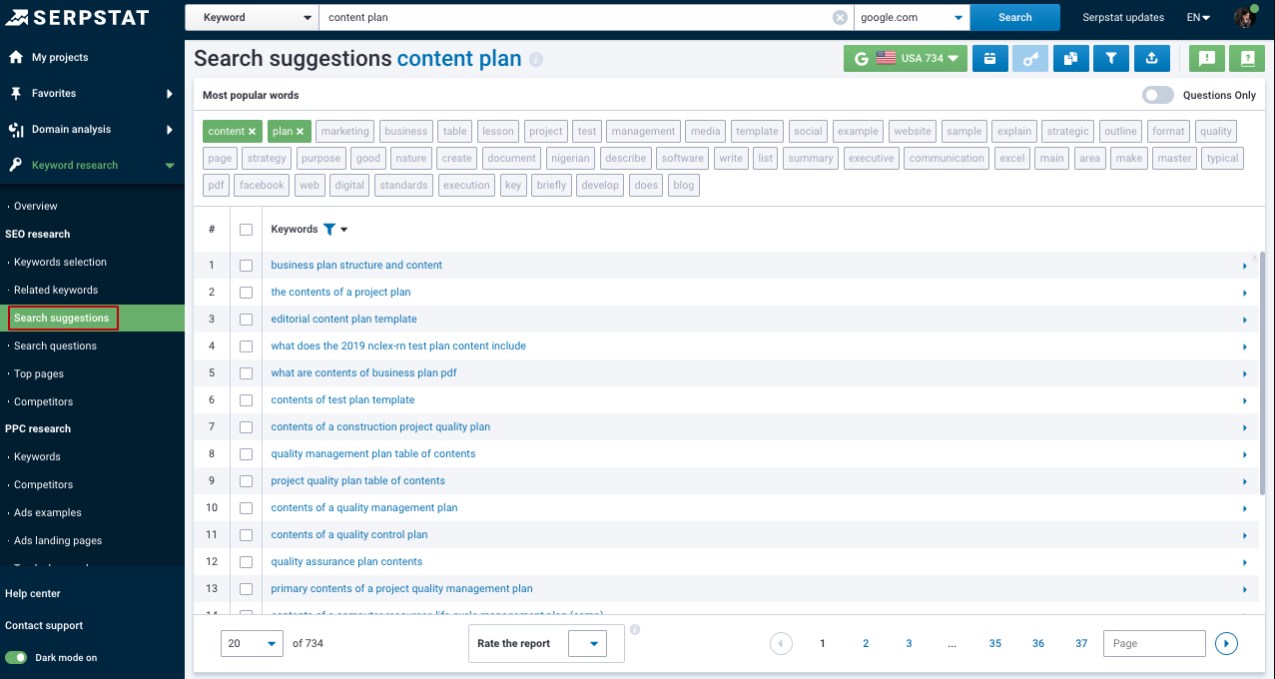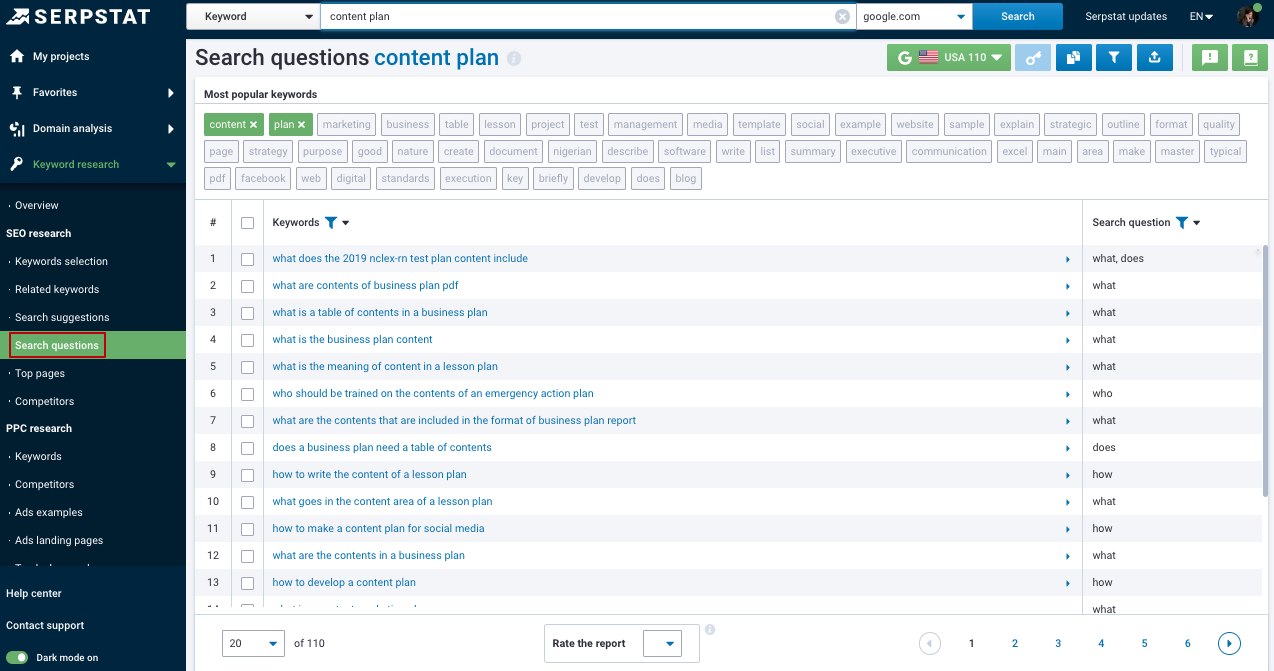Start Exploring Keyword Ideas
Use Serpstat to find the best keywords for your website
How to Use GSC to Create a Content Plan, Find New Ideas, and Update Articles

Our main speaker, Marco Giordano, and other experts from this sphere shared their thoughts on the topic.
So, let's dive in!
Intro
The question is, how can it be used to develop an effective content strategy? What are the main pros and cons of GSC, and whether it can be an autonomous tool when working with content?
Let's take a closer look at the main questions our experts were asked, so we can consider all aspects of these topics in more detail.
at Yıldırım Sertbaş
#1. What are the most common problems and misconceptions that people have about GSC?
GSC is considered a must-have for beginners when it comes to joining the world of SEO analytics. But why is it so valued?
Second, using Google Search Console offers a lot of benefits:
- understanding Google's index;
- enhancing your website's search engine visibility;
- optimizing the HTML code;
- boosting organic search traffic;
- monitoring website crawling;
- reviewing link reports;
- tracking the effectiveness of the ads you buy;
- getting insights right away, and many more.
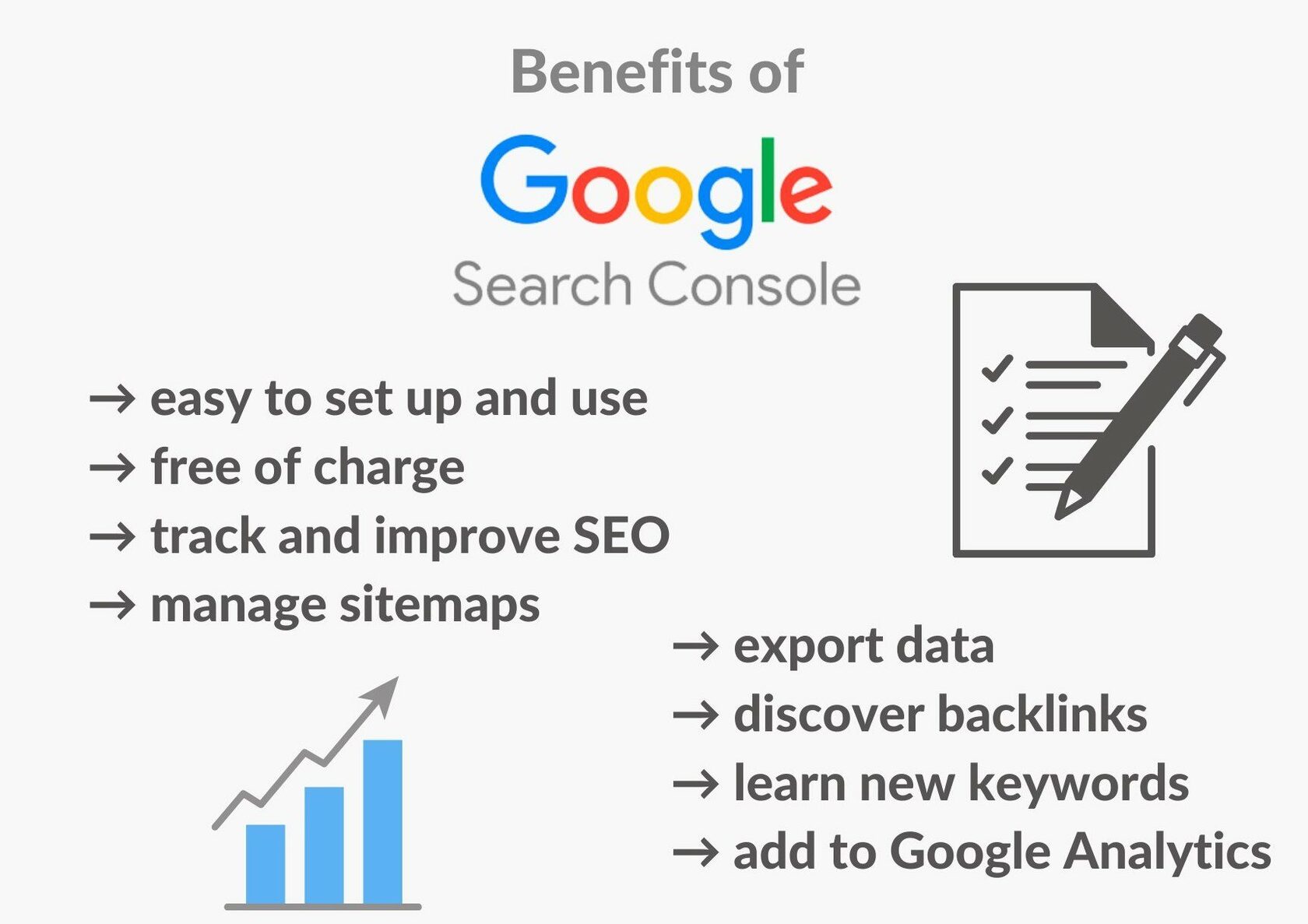
What about content creation? As it's an essential factor that influences SEO a lot, it should also be taken into consideration. And GSC is here to help :)
GSC is my first option when it comes to analyzing content and finding new data.
As time passed, marketers began to realize, though, that what they receive in the Google Search Console reports does not always correlate with what happens on the web in real-time.
Consequently, there is a lot of discussion regarding the reliability of the GSC since it's difficult to accurately determine what the industry's realities are.
This was true, but since their API provides partial data from the previous day, the issues were fixed.
The misconception is that it’s just a place to check and update index status.
There’s so much data in GSC (especially API) that can help inform content strategy.
What's more, Google is constantly working on better utilizing its data to maximize performance for webmasters.
#2. What are the non-obvious uses of GSC?
To use the most out of this tool, you've to apply all the unobvious functionalities it offers. Below are several hacks you may master and add to the optimization strategy you use:
For example, Keyword Research Tool helps expand semantics with the right words for your audience. The service shows similar keywords based on the similarity of the top-20 of their search results, for which there are at least two pages at the top as in the analyzed keyword.
Choosing appropriate keywords is going to be much easier with the "Related keywords," "Search suggestions," and "Search questions" reports.
When using Google Search Console, you can filter keywords according to a particular device. "Mobile Usability report" allows you to find keywords that people use to find your site on mobile.
- Work with pages positioned between spots 7 and 15. Using GSC, it’s possible to identify them by going to Search Traffic, Search Analytics, and click on Pages and Positions. It may be enough to optimize meta tags, add content, and internal links to improve rankings.
- Identify the content types that get the most backlinks. The more links from trustworthy and credible sources point to your content, the better it is. And check those from inferior websites that can hurt your reputation.
Once you get the data, you can cluster keywords, check the most common combinations, and even perform data analysis to check where you can improve.
You can check the Coverage section via the Search Inspection API. So you can create your own workflow rather than logging in every time.
Such as identifying "topics" for pages, predicting ranking drops, etc. If you put in the time/effort, you can get better coverage data by producing separate sitemaps for sections/content types, new content, etc. This allows you to get a clearer picture of what's crawled/indexed, and identify potential weak areas, etc.
Let's move on to the next section and dig deeper into how GSC can help improve content.
#3. What are the steps to make the most use of GSC and increase content efficiency?
GSC tools provide a wide variety of functions you can apply. You may find here below several steps to follow for improving your site's content by using GSC:
- The title should be catchy, and the most essential information should be at the beginning of the title. Try to include frequently used phrases (how to, what, why, top) and numbers in your captivating titles.
- As for descriptions, try to create appropriate snippets of approximately 155 characters long. The relevancy of this text directly affects the CTR.
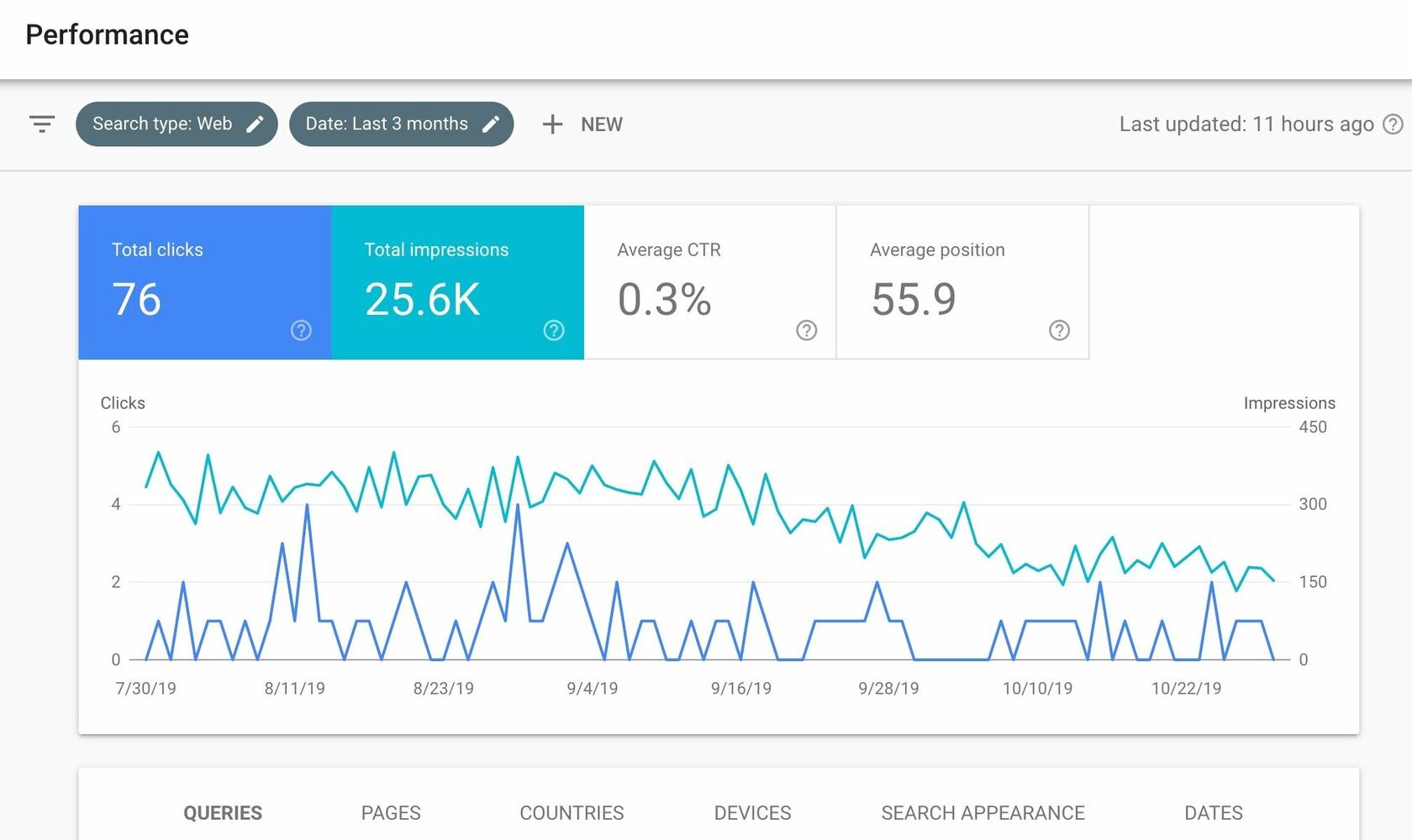
This includes not just the "keyword" or "intent" terms, but the nature (medium/format) and the performance over time. You should get a bunch of queries that work poorly, and a bunch of those that you do well with.
You can then start looking at variants (makes, models, locations, time periods, etc.) that you can research and look for opportunities.
I'm also a big fan of using it to see potential looming failures – pages that are dropping for terms, etc. This can indicate a shift in intent, change of meaning, or more technical issues that need to be looked at.
Looking forward to seeing your comments on our Twitter chat ;)
Join our #serpstat_chat!
Join #serpstat_chat to discuss the questions of practical SEO, trends, and updates with SEO experts.
We conduct them every Thursday at 2 pm ET | 11 am PT on our Twitter channel by hashtag #serpstat_chat.
#4. How to find new content ideas? Is there a more reliable and efficient way to do so?
Thus, the service allows you to see which posts interest users the most and create unique content based on the posts’ and keywords’ rankings.
Once you have exhausted all the topics, you can just expand your selection with a little fantasy. For example, the query “my dell xps doesn’t work” can give you ideas for many other laptop brands, I am pretty sure you’ll find plenty of ideas this way.
Anyway, clustering in GSC is already good if you have a website already ranking for something. In other cases, I alternate between analyzing competitors and checking keywords with tools or my knowledge of the industry.
• topics (not keywords, but the complementing words/phrases) that get clicks and impressions (how to do X with Y);
• queries where you can get more/less specific;
• potential openings for different mediums (video);
• queries/terms you get impressions but not clicks (you can try different intents/purposes, mediums/formats);
• topics/terms that you already perform on, but could expand/reinforce.
If you combine it with additional data (such as on-site search) – it's handy!
“After exporting the data, categorize the queries by topic/category to understand the groupings of keywords that your site is showing up for.”
“This data will show you the areas where you need to devote more time to get more impressions/clicks within organic search, plus ideas for topics you can write about to increase your traffic and click-through rates."
#5. Is GSC enough to add value, or there is a need for other tools?
Most of the information in Google Search Console can be combined with other competitive platforms, like Serpstat. By combining the data received from several services, you'll stay informed and be able to achieve better results.
Create a content plan, analyze your competitors, trends, and keywords seasonality, expand semantics, find niche leaders and improve your ads with Serpstat Tools.
I'd call that a must-have :)
However, for niche websites or smaller content projects knowing your audience/niche and regularly checking GSC is enough. Niche/content websites may be either built or improved without spending that much money on paid tools.
Once you test the waters, you get plenty of GSC data that you can use to model your content strategy accordingly.
For ideation, I like to use it alongside an exploration of SERPs (manual or tools) and look for gaps (questions, missing mediums, etc.) On its own – it's good enough for small sites if you do a bit of data-digging and export for regex/parsing etc.
For larger sites – you typically need to export/API grab data, and typically mix it with other data for a greater effect.
Instead of conclusion
A Google Search Console account primarily handles communication with a website owner. And having a registered account allows Google to inform web admins of website issues, errors, and penalties.
If you still haven't used this service — there is no better time than now for you to do it!
Learn, succeed, and share your experiences in this group: discuss workflows, network with other Serpstatmates, and contact our dedicated customer support representatives.
Get the latest product updates and industry news here!
Looking forward to interaction — we’re sure you’ll love our little community as much as we do :)
Speed up your search marketing growth with Serpstat!
Keyword and backlink opportunities, competitors' online strategy, daily rankings and SEO-related issues.
A pack of tools for reducing your time on SEO tasks.
Discover More SEO Tools
Text Analysis Tool
Unlock the power of your text data with our advanced Text Analytics Tools
AI Content Detection
Ai Content Checker – realize if the text is AI-generated
AI Text Generator
Try our AI Content Writer tool and streamline your content creation process
AI Content Tools
AI Content Marketing Tools – simplify and optimize the content creation process
Recommended posts
Cases, life hacks, researches, and useful articles
Don’t you have time to follow the news? No worries! Our editor will choose articles that will definitely help you with your work. Join our cozy community :)
By clicking the button, you agree to our privacy policy.





